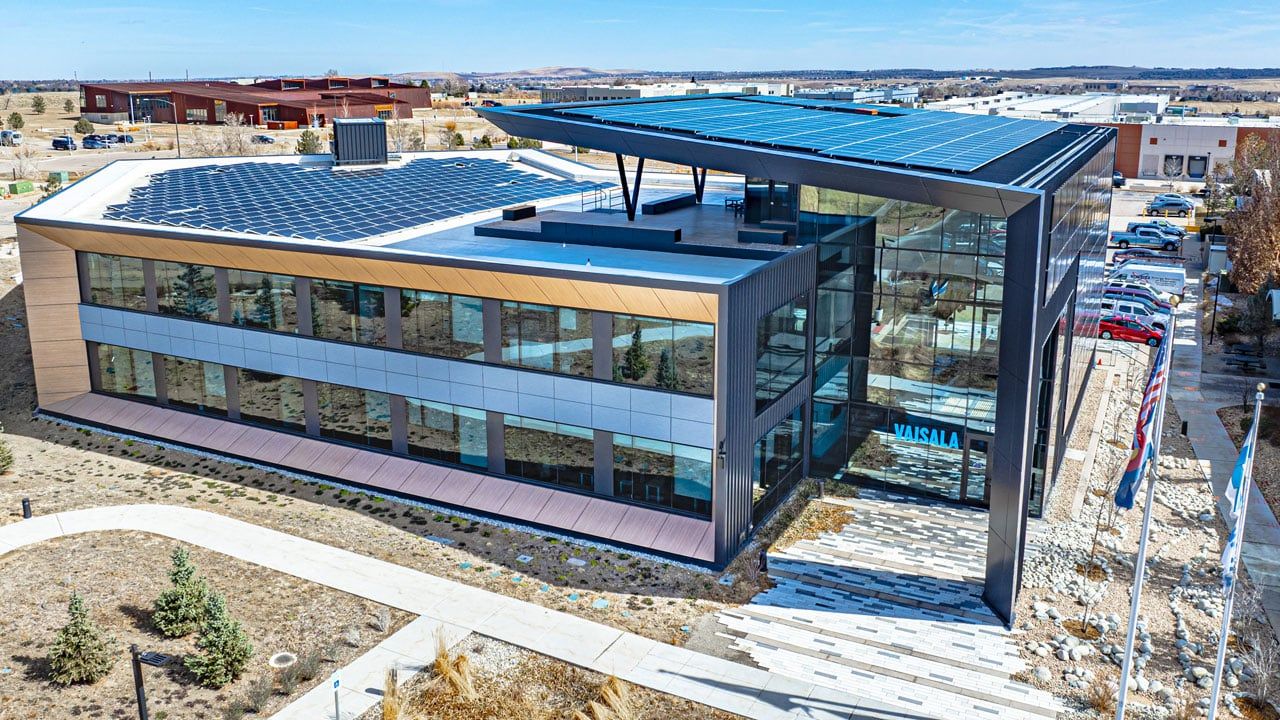E-Town staff, board sort out how to work together effectively
BOULDER — Ten years ago Nick Forster played in Bulgaria’s first concert that was open to the general public in 40 years. His award-winning band, Hot Rize, had just broken up, freeing his time to join a touring band sponsored by the state department in Eastern Europe.
“It was an unprecedented event that the Communists and emerging Democratic reformers were mingling with poets, dissidents, students and diplomats,” he says. “It was clear that we were reaching the diverse crowd.”
Music crosses boundaries and borders like nothing else.
“As I strolled through the streets of Sofia, I saw firsthand the much publicized environmental degradation of Eastern Europe,” he adds. “It made me think that there needed to be something to let people know there’s work to be done to care for our collective home.”
By the following spring 1991, Forster and his wife, Helen, put together the first E-Town show at the historic Boulder Theatre. A few months later, they were being aired weekly on National Public Radio’s broadcast.
“I made up the name E-Town under pressure on the phone with NPR,” Forster says, recalling his initial effort to connect his plan with their programs. “It made sense because E-Town is a synonym for global village. “E” stands for earth, entertainment, education and environment.”
Today the successful non-profit organization reaches 500,000 listeners weekly with its concerts and interviews. The concert collaborations bring together musicians of diverse backgrounds and nationalities. Individuals interviewed include authors, scientists, poets, politicians, policy-makers and entrepreneurs. The guests’ common ground is that they have ideas and information about the health of communities and the environment, Forster says.
Originally E-Town was a for-profit production company. “Because of the nature of our shows, people perceived us as non-profit and wanted to volunteer,” Forster says. After nine months they became a 501(c)3 because “if people wanted that from us, that’s what we needed to be,” he adds.
The mission of E-Town is to achieve a strong community aware of social and environmental issues through music and conversation. Forster describes four perceived results of E-Town meeting its mission:
1) It provides an entertaining radio show:
2) People are inspired to action:
3) People are exposed to ideas;
4) Connections are established between communities, individuals and organizations. Forster calls this mission E-Town’s “stated end.”
The organization recently completed a three-part facilitated training aimed at helping them more efficiently meet this stated end. The intention was to clarify roles of staff and board of director members.
A challenge the board has faced in the past is that E-Town is in the music business and is therefore driven by the history and experience of the Forsters. “It was hard for them (the board) to feel like they were making a difference,” Forster says.
“There was ambiguity about who was responsible for what prior to this,” he explains. “For example, I would think that the board wanted to be more involved in fund raising, and I would expect them to do things that were staff functions.
“Board meetings are no longer about rubber stamping,” he adds. “They can now say to me, ‘Unless you tell us that you’ve crossed lines, we assume everything is fine, and we need to be brainstorming on how to bring this organization to the stated end.'”
Implementation of the organizational changes affecting E-Town board members and the Forsters is still developing. Nancy Stevens, a board member for the past two and one-half years, describes the process as very liberating.
“It was most frustrating to go to a meeting for one and one-half hours and have nothing get accomplished,” she says. “This is helping us feel like we’re accomplishing something.
“I see my primary job as getting people acquainted with E-Town,” she adds. “I bring representatives from companies to the shows where they get captivated and usually ask how they can get involved. It’s really not a tough sell at all.”
E-town continues to present shows in the Boulder Theatre and is aired on national, local and commercial radio stations. To meet the goal of reaching more people with their message, the organization is exploring different means of expanding distribution such as through the Internet and television.
BOULDER — Ten years ago Nick Forster played in Bulgaria’s first concert that was open to the general public in 40 years. His award-winning band, Hot Rize, had just broken up, freeing his time to join a touring band sponsored by the state department in Eastern Europe.
“It was an unprecedented event that the Communists and emerging Democratic reformers were mingling with poets, dissidents, students and diplomats,” he says. “It was clear that we were reaching the diverse crowd.”
Music crosses boundaries and borders like nothing else.
“As I strolled through the streets of Sofia, I saw firsthand…
THIS ARTICLE IS FOR SUBSCRIBERS ONLY
SPONSORED CONTENT
Commercial Solar is a big investment, but not an overwhelming one
Solar offers a significant economic benefit for commercial property owners while also positively impacting the environment and offering a path to compliance for new municipal requirements like Energize Denver. A local, experienced solar installer will help you navigate the complexities of commercial solar to achieve financial success for your project.
Continue reading for less than $3 per week!
Get a month of award-winning local business news, trends and insights
Access award-winning content today!

